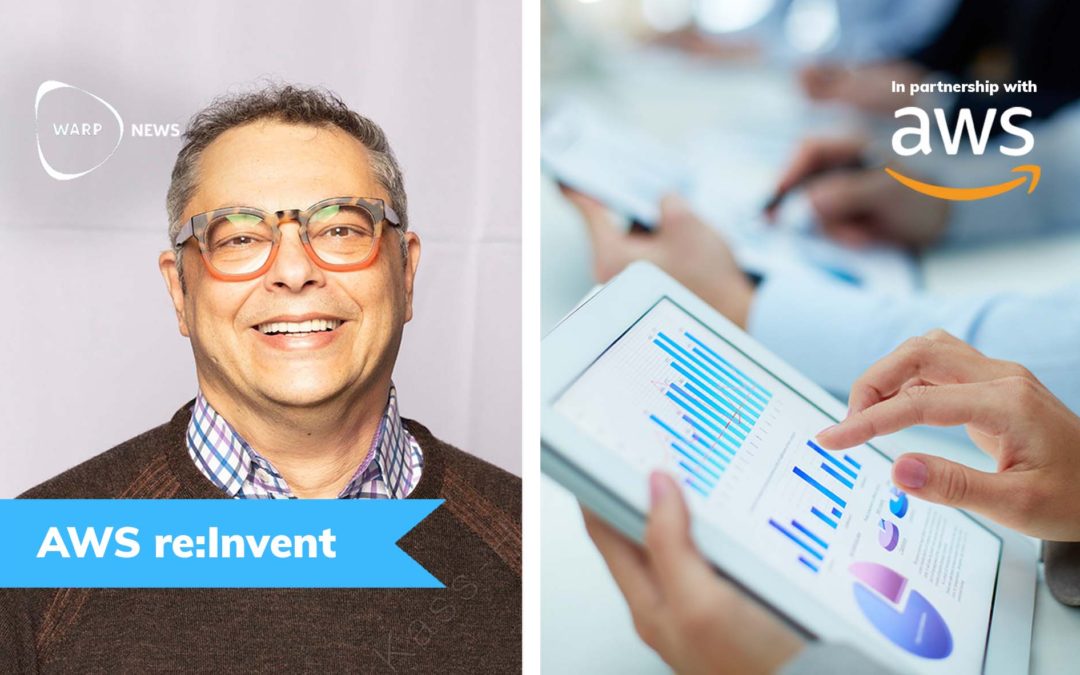
"Doctors' notes, X-rays, lab reports… a patient can collect up to 5000 data points. There is a massive amount of information that must be indexed and organized to create an overall picture of each individual."
Taha Kass-Hout is Director, Machine Learning & Chief Medical Officer at Amazon Web Services. Warp News takes the opportunity to interview him during the ongoing conference re:Invent to understand how Amazon's cloud services and healthcare are connected.
In short: it is about helping healthcare to store, index and analyze data. In an increasingly digitalized care, this is critical.
Better care with machine learning
Amazon HealthLake and Amazon Comprehend Medical are two of the services developed specifically for use in health care. With the help of machine learning, unstructured data, such as doctors 'notes, lab reports, patients' medication and diagnoses, can be structured and analyzed. This in turn can contribute to everything from the development of new drugs to predicting the risk of heart failure in individual patients.
"It's about saving lives" – Taha Kass-Hout, Amazon Web Services
"It is about saving lives," says Kass-Hout, "because this makes it possible for healthcare institutions to create meaning in the data they collect."
He exemplifies with Rush University Medical Center, in Chicago, which used Amazon's tools to analyze patient data during the pandemic and thus be able to direct care resources to those most in need. Another example is Beth Israel Deaconess Medical Center in Boston, which has worked to improve the scheduling of its 41 operating rooms.
Good for the patient – and the economy
More efficient care benefits the patient, but can of course also provide financial savings. Kass-Hout mentions Anthem, a company that provides health insurance, which has been able to automate 80 percent of the work reviewing claims.
Because doctors and nurses in Swedish health centers spend 40 percent of their time on administration, you might get a sense of the potential for AI and machine learning to reduce the paperwork somewhat…
November 29, 2021, the news was presented that the pharmaceutical company Gilead Sciences, which develops various antiviral drugs, will use Amazon's cloud services.
"We are very happy with their announcement. It comes after we have worked close to them for several months," says Kass-Hout and points out how AWS can help them with everything from the development of new drugs to distribution and manufacturing.
Organizing data is a key to healthcare
The next ten years will largely be about organizing data, assesses Taha Kass-Hout.
"In the last decade, we have seen extensive digitization of health data. But unfortunately, it is very difficult for different actors to make any sense of this data if it is not organized and indexed. When more people connect to the cloud, we will be able to make better analyzes and forecasts."
He mentions in particular the Swedish Science for Life Laboratory, a collaboration between Karolinska Institutet, KTH, Stockholm University and Uppsala University, to promote research in life sciences, among other things by helping researchers handle large amounts of research data.
From 20 months to 42 days
The Covid-19 pandemic has, of course, further emphasized the importance of processing data, both to keep track of the spread of the disease and in vaccine research.
"I can, for example, mention how we have worked with Moderna. It is a biotech company that was born in the cloud," says Kass-Hout.
Instead of going to the lab, Moderna's researchers work in a web portal for drug development, the Drug Design Studio, based in the AWS cloud. Kass-Hout highlights how Moderna managed to lay the groundwork for a vaccine within two days of sequencing the virus' DNA being published for the first time. From there, it was quick to develop a drug that could be tested.
"Developing a vaccine candidate is a process that usually takes 20 months. Here they succeeded in 42 days." – Taha Kass-Hout, Amazon Web Services
"Developing a vaccine candidate is a process that usually takes 20 months. Here they succeeded in 42 days. It was really fantastic," Kass-Hout concludes.
👆️ This article is produced by Warp News in partnership with Amazon Web Services.
❤️ Our partners enable Warp News to spread fact-based optimistic news to thousands of new readers. In return, they have the opportunity to spread their message and market themselves to you as a reader in the form of partner content – like this article.
✅ The article is marked according to the guidelines developed by Sveriges Tidskrifter.
❓ Want to know more? Send an email.





